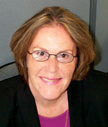 |
|
Cathy Ciccolella
|
In conversations both with individual eyecare practitioners and with executives and officers of the American Optometric Association (AOA), I heard time and again that although patients/customers may not be spending quite as much on second pairs of eyeglasses or lens treatments right now, ECPs’ flow of consumers through their exam rooms remains generally consistent so far this year.
When I asked new AOA president Peter Kehoe, OD, for example, how the economy is impacting his own practice in Illinois, he told me, “We’re not seeing patients shying away from premium products at all--they’re excited about them and want them.”
And Barry Barresi, OD, the AOA’s brand-new executive director, noted, “I’m hearing from other optometrists that their practices are healthy, and they’re doing very well. Demand for ODs’ services has not been compromised by the country’s economic problems, although the cost of doing business is going up.”
How is the optometric profession managing to avoid being slammed by what seems to be a recession, whether current conditions meet the strict economic definition of that term or not? Maybe by its members’ repetition over the last two years or so of the idea that eyecare is a critical element in overall health care and wellness--with both ECPs and the managed-vision firms whose members they see telling the same story over and over, it appears to be sinking in with consumers, who are turning up for eye exams this year in strong numbers.
(Another, more pessimistic school of thought holds that usage of managed vision benefits was up in the first half of this year--and several key players report it was--because employees fearful of losing their jobs are taking advantage of their vision plans earlier than usual in 2008 while they still have them.)
But if it’s the health-care/wellness message that’s bringing people into eyecare practices and optical retail stores, all the more reason to keep it up, and continue stressing the importance of the ECPs’ role. In an economy like this one, if you find an appeal that works, keep making it. ■











